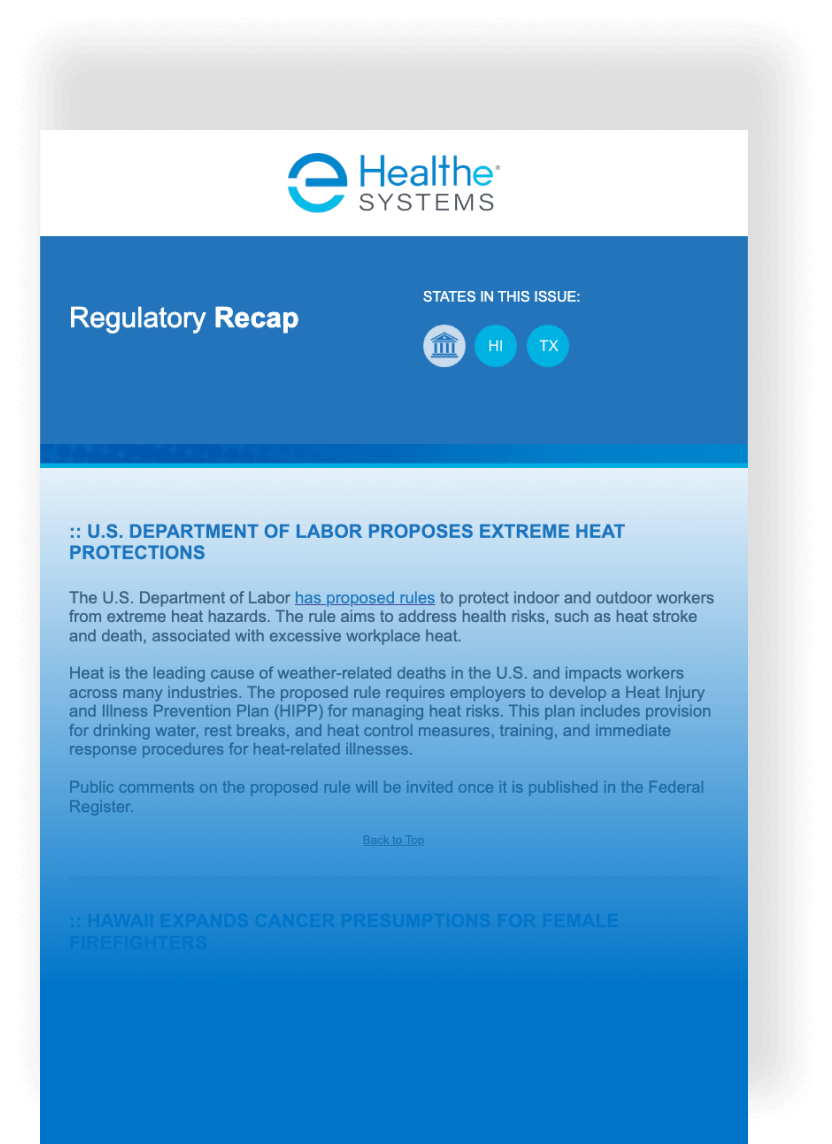On July 16th, Healthesystems attended the Michigan Workers’ Compensation Advisory Council meeting, where members are actively shaping the 2026 ruleset.
Healthesystems has long been a standing supporter of the Council, promoting fair and practical policy development for system stakeholders. Sandy Shtab, Healthe’s VP of Industry and State Affairs, is a member of the AWP Subcommittee and plays a key role in advancing pharmaceutical reimbursement reforms. Her advocacy demonstrates Healthesystems’ commitment to modernizing Michigan’s workers’ comp system.
Discussions at the meeting focused on fee schedule policies such as proposed limits on physician-dispensed medication reimbursement and electronic delivery methods for EOBs, all with the goal of finalizing policies by year’s end.
Kris Kloc, Senior Health Care Specialist at the Workers’ Disability Compensation Agency, shared updates from the AWP Subcommittee, which has met four times since August 2024. The group is proposing language for the 2026 ruleset to limit reimbursement for physician-dispensed medications to a specific time frame post-injury, aiming to provide easier access for injured workers. She also emphasized a more collaborative, stakeholder-driven rulemaking process.
The council also plans to review the continued use of Modifier -GF, a state-specific modifier, which reimburses nurse practitioners and physician assistants at 85% of the fee schedule.
During the meeting, there was a brief discussion about a long-standing requirement that is unique to Michigan claims. The state requires payers to send paper Explanations of Benefit (EOBs) Form WC-739 to injured workers. Sandy Shtab from Healthesystems requested the Council re-evaluate the necessity of this requirement to determine if it benefits the injured workers, or brings some other value, such as increasing the identification of fraud, waste, or abusive billing practices.
Several members of the Committee, including those representing injured workers, self-insured employers, and insurers agreed that EOBs can be confusing for the injured worker. Some indicated the forms often result in unnecessary phone calls for adjusters. Agency staff indicated they might consider alternate methods of communication, such as email or other electronic delivery systems, to reduce the administrative burden on payers.
Director Nolish supported continued discussion on the topic, suggesting that electronic transmission could streamline the process. Public commenters also recommended aligning with IAIABC standards and even limiting EOBs to denials to reduce paper use.
These topics will be revisited at the next Council meeting on October 15, 2025.
Healthesystems will continue to attend Advisory Committee calls to offer insight and assistance to the state and its various stakeholders on this and other topics.







